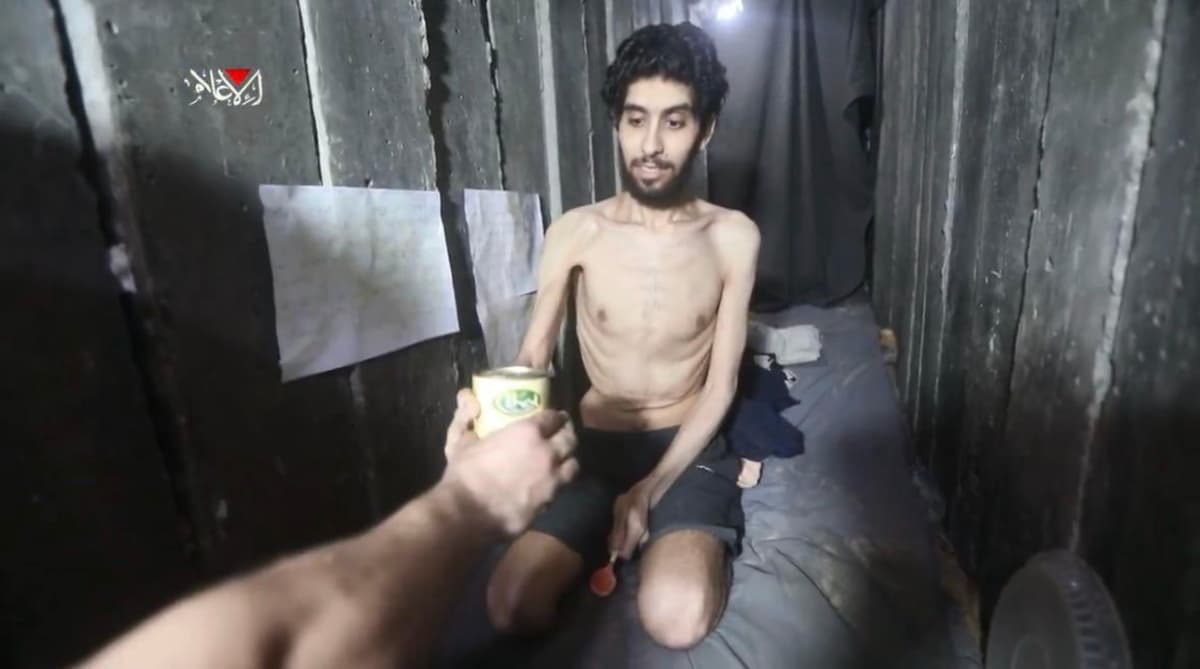Israel finds itself at a critical juncture following nearly two years of conflict with Hamas. Prime Minister Benjamin Netanyahu and his top security advisers are preparing the public for a potential final assault on Hamas, a move that raises significant concerns about the safety of remaining hostages. This escalation comes in the wake of distressing videos released by Hamas over the weekend, which depict two Israeli hostages who appear to be in dire condition.
On Tuesday, Netanyahu convened a three-hour meeting with key officials, including strategic adviser Ron Dermer, Defense Minister Israel Katz, and the chief of staff of the Israel Defense Forces (IDF), Lieutenant General Eyal Zamir. The meeting concluded with a statement indicating that the IDF is prepared to act on any decisions made by the cabinet, which is expected to deliberate on the next steps on Thursday.
The troubling videos of the hostages have intensified pressure on Israeli leadership. Jonathan Dahoah Halevi from the Jerusalem Center for Security and Foreign Affairs remarked that Hamas’s strategy to sway public opinion against the government has backfired, pushing the government towards a more aggressive stance. He stated, “Hamas made a mistake… they are forcing the government to escalate in Gaza.”
In the United States, reactions have been measured. State Department spokeswoman Tammy Bruce condemned the actions of Hamas, describing the videos as “an astoundingly evil reminder of who they are.” She emphasized Washington’s focus on securing the release of hostages, including the remains of two American citizens, while ensuring that Hamas does not regain power in Gaza.
The Israeli government is facing limited options, with some analysts arguing that military action may be unavoidable. Halevi pointed out that Hamas’s survival could have far-reaching consequences for Israel and the region. “If that happens, the ramifications will be felt far beyond Gaza, across the Mideast and beyond,” he cautioned.
The meeting on Tuesday also addressed General Zamir’s proposed strategies for continuing military operations in Gaza. However, there are concerns that such actions could endanger the lives of hostages. Reports surfaced suggesting Zamir might resign if cabinet decisions conflict with his position on avoiding attacks in areas where hostages are believed to be held. While these claims remain unverified, they have contributed to a political firestorm surrounding the IDF leadership.
Former IDF navy commander Vice Admiral Eliezer Marom expressed skepticism about the cabinet’s willingness to make decisions that could jeopardize the hostages’ lives. He indicated that the military’s current objective is to protect the hostages while addressing the threat posed by Hamas. “There are a lot of variations between complete Gaza occupation and doing nothing,” he noted.
Despite the potential risks, Israeli officials are emphasizing the need to decisively confront Hamas. Agricultural Minister Miki Zohar stated, “We have no other choice, but to defeat Hamas… anyone telling you that our next move would not endanger the lives of hostages is lying.”
Public sentiment in Israel has shifted, with widespread protests advocating for negotiations with Hamas to secure a ceasefire and the safe return of hostages. Critics question whether such negotiations would leave Hamas intact, enabling future attacks like those witnessed on October 7, 2023.
As the situation unfolds, Bruce highlighted the need for a sustainable resolution to the conflict, urging for a solution that breaks the cycle of violence. Israel’s leadership now faces what Halevi described as a “classic hijacked plane dilemma,” weighing the risks of a military rescue against the potential for hostage harm. The decisions made in the coming days will undoubtedly shape the future of Israel and its relationship with Hamas, as the stakes continue to rise.
